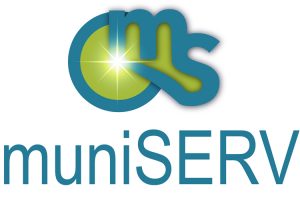Over the last two years, many of us had to learn how to connect differently than we were used to. Instead of putting on our best suit, we’re still in our jammies from the waist down. Instead of shaking hands we’re pushing unmute.
Slowly but surely, the world is beginning to open back up. Where it’s safe to do so, many meetings are returning to an in-person format. Since we’ve all become accustomed to doing things virtually, it may take a little time and effort to get back into the swing of the face-to-face meetings. Here are a few tips to help make your meetings run as smoothly as possible.
Set the Agenda:
Municipalities know this, but meetings always run more efficiently when there is an agenda to follow. Having a clear agenda helps set the expectations. If the conversation starts going off track, you can always point back to the agenda items to steer things in the right direction. Setting out estimated times each agenda item should take for discussion, will also help provide direction and keep folks on track.
Start on Time. End on Time.
While it may seem polite to wait for some late arrivals to join, there’s a bigger downside to holding off until everyone is in the room. First and foremost, this sets a bad precedent. Accommodating the latecomers shows the others that arrival times are lax. This can spiral out of control quickly. Secondly, the attendees who’ve prioritized arriving on time are now feeling frustrated that their time isn’t being seen as valuable.
Set Ground Rules:
Having a few basic ground rules around meeting etiquette can help provide great flow in your meeting. Some solid rules, or expectations, can be something simple like; participate, get focus, maintain momentum, and reach closure. If you list these rules at the top of your agenda, both new and returning attendees will understand the direction of the meeting.
End with an Action Plan:
We’ve all been in meetings where the conversation seems to go around in circles without resolving anything. It’s important to establish a plan of action for the agenda items that need follow-up. Assigning certain people to particular tasks and plotting out a course of accountability will ensure that your meetings have purpose and value to all of those involved. We’ve conducted meetings by video teleconference for so long, (and honestly, we’ve become pretty good at them), it will be an adjustment for everyone to start attending again in person. But a well-organized meeting, and Chairperson with good leadership skills, will get us all back
in the swing of things soon.
Oh, and one more thing – dig out that suit again. Things may have changed over the last couple of years, but it’s still not considered socially acceptable to wear pajama bottoms to an in-person meeting.








.jpg)



